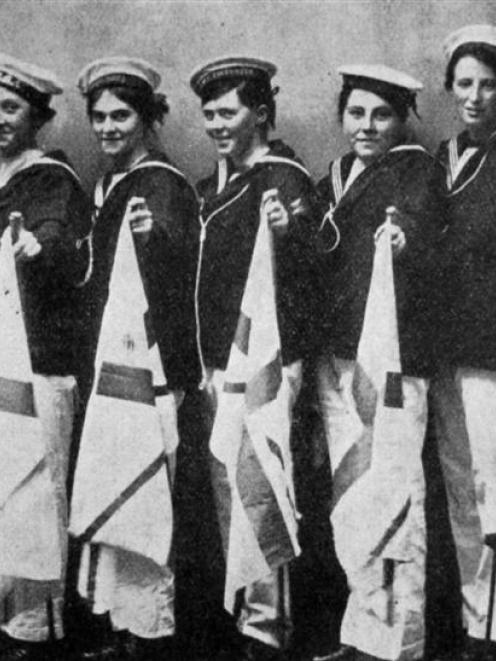
''It required splendid skill, organisation, and leadership to get a huge armada under weigh from Mudros Bay without accidents. The warships and transports were divided into five divisions. Never before has an attempt been made to land so large a force in face of a well-prepared enemy.
''Very slowly on the morning of April 25 the boats, in tow, moved inshore. Each edged towards the other, and in that order reached the beach four cables apart. The battleships moved slowly in after them until the water shallowed. Every eye was fixed upon the grim old hills in front. Amid the menacing gloom not a sound was heard, but lights soon appeared, as if the enemy was surprised. In our nervy state stars were often mistaken for lights ashore. Dawn was rapidly breaking.
''At 4.53 came a sharp burst of rifle fire from the beach, and the sound relieved the prolonged suspense, which had become almost intolerable. The fire lasted for a few minutes. Then a faint British cheer came over the waters telling that ''the first position was won''. At 5.30 the fire was intensified. By the sound we could tell that it was our men. The firing lasted for 25 minutes, and then died down somewhat.
''The boats had almost reached the beach when a party of Turks entrenched ashore opened fire with a fusillade from rifles and Maxim guns. Fortunately most of the bullets went high. The Australians did not wait for orders or for boats to reach the beach. They sprang into the sea, formed a sort of rough line, and rushed the enemy's trenches. Their magazines were uncharged, so they just went in with the cold steel.
''It was over in a minute. The Turks in the first trench were either bayonetted or ran away, and a Maxim was captured. The Australians then found themselves facing an almost perpendicular cliff. Half-way up the enemy had a second trench, strongly held, from which they poured a terrible fire upon the troops below and upon the boats pulling back to the destroyers for a second landing party.
''It was a tough proposition to tackle in the darkness, but the colonials stopped a few minutes to pull themselves together and get rid of their packs. Then they charged their magazines and proceeded to scale the cliff without responding to the enemy's fire. They lost some men, but did not worry. In less than a-quarter of an hour the Turks were out of their second position, either bayonetted or fleeing.''
• The war as real war comes home to us at last.
All other interests are second to the fighting at the Dardanelles and the casualty lists that day by day this week have come dribbling through the cable.
Dribbling is the word.
The principal losses are a week old, yet the New Zealand public has no clear account of them.
For reasons not understood, though doubtless reasons good, we still lack information about the men in the ranks who fell fighting - how many and their names.
Of the wounded, long long lists, with mention of those who died of their wounds; but of those who were killed in the field no word.
However, we know, enough for sorrow, and enough for glory, if that is the word; what remains we shall know presently.
The good soldiers we sent to the Dardanelles will know what we are thinking of them.
We honour them for their self-dedication to a great cause, a stern fight, and to wounds and death as the chance might fall. - ODT, 8.5.1915.
• COPIES OF PICTURE AVAILABLE FROM ODT FRONT OFFICE, LOWER STUART ST, OR WWW.OTAGOIMAGES.CO.NZ












